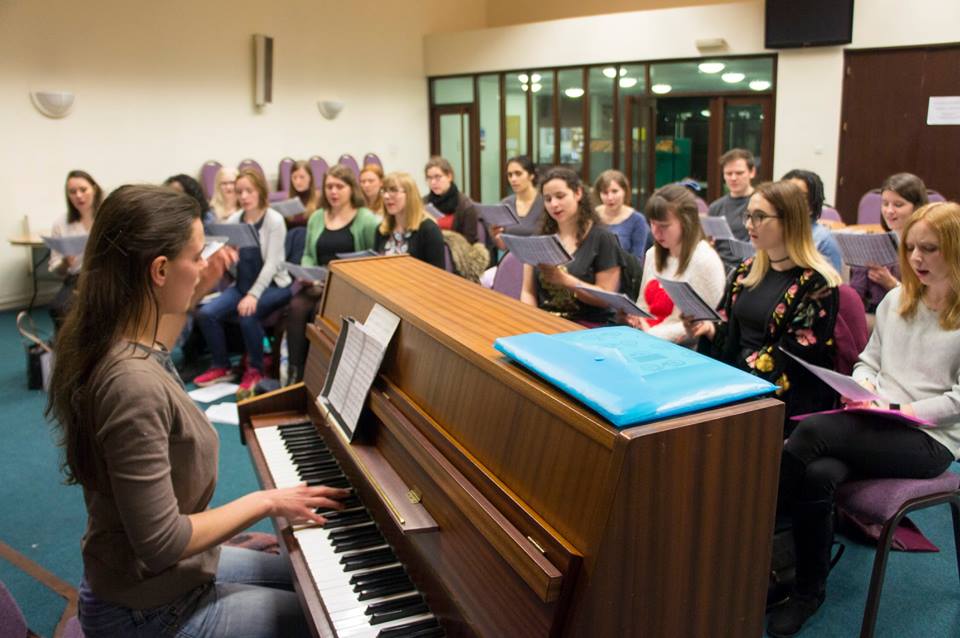I have never considered myself to be a singer, but have always enjoyed performing and being involved in music in any way I can. My first instrument is the flute, which I took to grade 8, but I’ve always felt it to be a solo instrument so I then moved to the trumpet. I took this as far as grade 3 and officially stopped lessons as a result of family circumstances, but I loved how loud the trumpet was compared to the flute. It was also my way in to the local concert bands and ignited my passion for community. I studied music at university and there I picked up the French horn. I was always eager to be involved in bands and orchestras, so when the opportunity came to start conducting I couldn’t wait! I became conductor of the Leeds University Union Music Society (LUUMS) Concert Band and studied conducting under the guidance of Eduardo Portal.
After graduating, conducting opportunities came few and far between, so when I saw the advert to conduct Leeds Vocal Movement I got an application in as soon as I could. Looking into them, they appeared to have a great community built around singing in a relaxed environment which really appealed to me. I found out after the audition that I wasn’t going to be leading the choir and that was fine by me, I’ve never considered myself to be a singer after all. Months later, I got a call asking if I wanted to try a new role for LVM as apprentice conductor.
When I first arrived, the role was very much in its infancy. There were ideas for how the role would look, but as I was to be the first to fill the role I got to find out what worked and similarly what didn’t. Since I’d never had much experience with singing, I wasn’t particularly comfortable warming up voices, so I was very glad to have more of a back seat and learn techniques from Caitlin in more of a participatory manner. The Kodaly method Caitlin uses to warm LVM up is perfect as it encourages the singers to learn the fundamentals of music theory practically. The effects of this were really noticeable when taking sectionals since it took much less time to learn new pieces towards the end of the year.
It has been a wonderful experience working with LVM and I feel I’ve really learnt a lot about rehearsing singers and a choir efficiently and effectively, and I’m glad to have learnt this in such an encouraging environment too! I got to conduct a few performances in the last concert, but I would say the most enjoyable and most rewarding part of the role was seeing the choir grow musically – it’s really encouraging as a conductor to see the musicians grow in confidence and musicianship together. It’s really helped my musicianship personally, and most importantly I now consider myself to be a singer. I am sad to be leaving this position, but strongly believe the choir is going from strength to strength.






